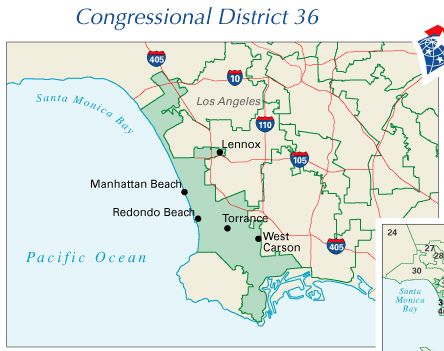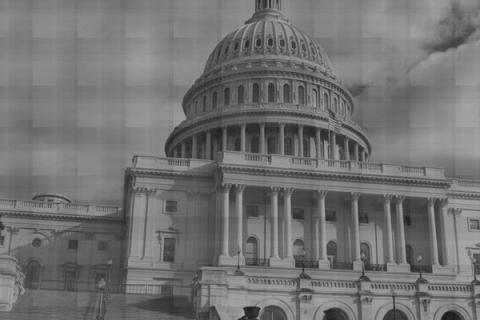When Democratic Rep. Jane Harman announced earlier this month that she would be resigning her 36th Congressional District seat, Los Angeles City Councilwoman Janice Hahn wasted no time in announcing her bid for the seat, issuing a press release and getting a revamped campaign website up and running. Earlier this week, California Secretary of State Debra Bowen confirmed speculation that she would jump into the race with an announcement of her own Tuesday.
Later in the week, I had a chance to speak with another Democratic candidate who has thrown his hat into the race, albeit less conspicuously than the more high-profile contenders mentioned above. Paul Whitehead, formerly a Republican who challenged Jane Harman for her seat in 2004, capturing 33% of the district's votes (to her 62%), told me on the phone that he had switched parties in 2007 and would be running as a Democrat this time around.
With a very friendly and kind demeanor, the first thing Whitehead said to me after our initial greeting was that he enjoyed my recent account of CPAC here at CAIVN, mentioning that he had been a life-long Republican and was interested to hear about GOProud's controversial participation at CPAC for the last two years. When I asked if they had anything to do with switching parties, he said that it didn't really:
"I have been to Republican events before and felt uncomfortable- occasionally something would be said about gay people that wouldn't be that positive, but that wasn't really it. I felt like Republican policies over the last few years had been getting lopsided, even before the economy completely crashed and we had the TARP bailouts. I figured I'd be a conservative Democrat instead of a liberal Republican."
Without conventional party labels as guideposts to Whitehead's political philosophy, I had to ask a little more about his political background and beliefs. The Republican-turned-Democrat, who currently teaches government and English at a high school for troubled teens, told me about his time working for the senior George Bush's presidential campaign in 1988 after graduating with his degree in political science, and explained that he's definitely a fiscal conservative:
"I have a history with the Republican Party and I am a conservative. I am. The standards they carry- lower taxes, smaller government- but after not being satisfied as a Republican, I switched and became a Democrat. We'll see if I'm comfortable there."
Despite his history as a candidate in California's 36th Congressional District, I had to ask how well Whitehead thought he would do against the other Democratic candidates in what might end up being a pretty thick field of contenders. He answered candidly:
"A candidate that used to be a Republican, who is now a Democrat, who doesn't want to run his campaign the way other politicians do or just tell people what they want to hear? It would have to be a Paul Wellstone moment for me to win and I'm not even going to try to deny that. But you do have to be serious and in it to win it and I am."
When I asked him how his campaign would be unconventional, he answered:
"I'm not going to tell anybody what they want to hear. I just don't want to lie and make myself sound like I know everything because I don't. I'm just angry. Angry that everyone is losing their jobs, angry about the state of the economy.
I don't have a website and I don't know that I even want to put one up. It's so easy to get caught up in the minutiae, and then you're not meeting with the people in your district. I plan on doing a lot of walking, knocking on doors, and talking directly with the people in my district. Last time I ran, we called it Whitehead Walks to Washington."
When asked what his legislative priorities would be as a U.S. Congressman, Whitehead at least had the boldness to admit what may be true of most representatives on Capitol Hill:
"I don't know what I'm going to do, but I'm going to figure it out. Everyone is going to say 'do something to create jobs,' and we do need to do something about jobs, but what do they mean by that? We can't keep raising taxes and have economic stimulus by spending more money."
* Editor's note- Just as a reminder for our audience, CAIVN does not support or endorse any political candidates.

